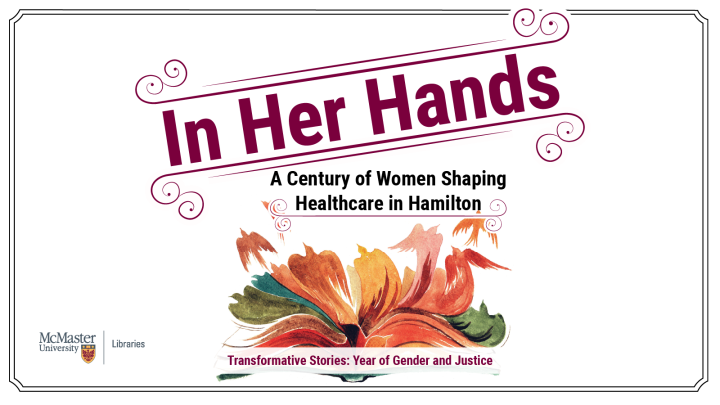Exhibit
The women highlighted in this exhibit include nurses, doctors, midwives, geneticists, and politicians. Each of these women has overcome challenges and contributed to healthcare practice, education, or policy in Hamilton in some way. These women were chosen based on the records available in the Health Sciences Archives and other archives in and around Hamilton.
We acknowledge the significant contributions of numerous women to healthcare in Hamilton beyond those highlighted in our exhibit. We warmly invite you to share your insights or assist in enriching our collections by filling out the form available in the ‘Feedback’ tab.
All material showcased in this exhibit has been used with permission and/or in the public domain.
Information Box Group
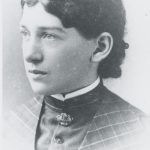
Elizabeth Smith Shortt, 1859-1949 View Archival Material
Dr. Elizabeth Smith Shortt, born on January 18, 1859, was a trailblazer in medicine and a champion for women’s rights in Canada.
In the fall of 1879, the Royal College of Physicians and Surgeons (affiliated with Queen’s University) in Kingston, Ontario, announced that a special women only course of lectures leading to the M.D. degree would begin the following year. Elizabeth was one of four young women who enrolled. In subsequent years, some coeducational classes were introduced but this did not meet with success. Loud protests from some of the male medical students, and their threat to leave the College, resulted in the establishment of the Kingston Women’s Medical College which opened in October 1883. Elizabeth was among its first three graduates.
Elizabeth established the first woman-led medical practice in Hamilton in 1884, where she would practice for two years. Marrying Dr. Adam Shortt, she expanded her influence beyond clinical practice to medical education and women’s advocacy in Kingston and later Ottawa. Elizabeth’s roles included registrar and professor at the Women’s Medical College, organizer of Ottawa’s Canadian Club, and leader in various women’s organizations. Her work spanned public health advocacy and social welfare, notably in legalizing oleomargarine and improving mothers’ allowances.
Elizabeth Smith Shortt fonds
The following digitized photos and letter were scanned and provided by the University of Waterloo Archives and Special Collections. This is a small sample of their records. To view the finding aid for the Elizabeth Smith Shortt fonds (SCA19-WA10), visit this link.
Hover cursor over images to see a description. Use the diagonal arrows to expand to full screen, and use the left and right arrows to navigate to the next or previous image.
The following is a letter written by Elizabeth Smith Shortt to the Editor of the Times, in response to an article titled “Women’s Sphere”.
View letter here: WA10-40-2149_ScannedLetters
View typed transcript of letter here: WA10-40-2149_typed
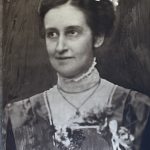
Annie Davis, 1874-1919 View Archival Material
Born on May 4, 1874, to James Grant Davis and Jane Mitchell Davis, Annie emerged from humble beginnings on a farm near Jarvis, Ontario. Her initial career as a schoolteacher would eventually give way to a deeper calling in medicine, leading her to graduate with first-class honors from the Ontario Medical College for Women and Trinity University in Toronto in 1902.
After practicing for a few years in Brigden, Ontario, Dr. Davis relocated to Hamilton, where she established her first home and medical office at 576 Barton Street East. The year 1910 marked a significant expansion of her practice when she and her sister Esther Davis, a pharmacist, purchased a lot at the northeast corner of King Street East and Arthur Avenue. Here, they constructed two buildings: a combined doctor’s office and drug store and a house where they lived. These buildings, still standing today, signify the tangible legacy of Dr. Davis’s commitment to her profession and community.
Dr. Annie Davis passed away on March 5, 1919, at the age of 44, after years of dedicated service to her community, even in the face of personal health challenges. Her obituary in the Hamilton Spectator hailed her as a “faithful and indomitable physician,” respected by peers and cherished by many for her unwavering commitment, especially during the critical times of war when she believed every hand was needed. Dr. Davis leaves behind a legacy enshrined in the Davis Collection at the Hamilton Public Library Local History and Archives—a testament to a life devoted to the well-being of others, marking her as one of Hamilton’s early medical pioneers.
Annie Davis Collection
These digitized photos and textual documents are provided courtesy of the Hamilton Public Library, Local History and Archives. A finding aid for the collection can be found here: Davis Collection finding aid
Hover cursor over images to see a description. Use the diagonal arrows to expand to full screen, and use the left and right arrows to navigate to the next or previous image.
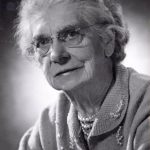
Elizabeth Bagshaw, 1881-1982 View Archival Material
Dr. Elizabeth Bagshaw was a notable Canadian physician and a pioneering advocate for women’s reproductive rights. Born on October 18, 1881, in Cannington, Ontario, she made significant contributions to women’s health care in Canada, particularly in the area of family planning.
Bagshaw attended the Ontario Medical College for Women in Toronto, which later merged with the University of Toronto, from where she graduated in 1905. She started her medical practice in Hamilton, Ontario, and became one of the first female physicians in the area. Dr. Bagshaw’s career spanned over 60 years, during which she provided medical care to generations of families and became a respected figure in her community.
One of her most notable contributions was her involvement with the Hamilton Birth Control Clinic, which she helped to open in 1932. At the time, birth control was a highly controversial topic and often illegal. Dr. Bagshaw served as the medical director of the clinic for many years, working under challenging conditions to provide women with access to contraceptive advice and services. The clinic was the first of its kind in Canada, marking a significant step forward in the fight for women’s reproductive rights and health care.
Archival material relating to Elizabeth Bagshaw
The following digitized photos of Elizabeth Bagshaw from our Hamilton Academy of Medicine Collection are a partial representation of what is contained in the Health Sciences Archives.
Hover cursor over images to see a description. Use the diagonal arrows to expand to full screen, and use the left and right arrows to navigate to the next or previous image.
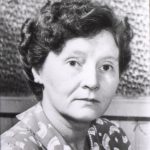
Nora Frances Henderson, 1897-1949 View Archival Material
Born in London, England, in 1897 and moving to Hamilton, Canada, with her family in 1913, Nora-Frances Henderson embarked on a journalism career in 1918 at the Hamilton Herald. By 1921, she was editing the Women’s Page, leveraging her platform to champion women’s involvement in civic matters, notably influencing the inclusion of women on the Hamilton General Hospital Board in 1929.
Transitioning from journalism to politics, Henderson became Hamilton’s first female Alderman in 1932 and then its first female City Controller in 1934. Serving on the Board of Control for thirteen years until 1947, she then significantly contributed to the Children’s Aid Society of Ontario as its Executive Secretary until her passing in 1949.
Henderson’s numerous contributions to healthcare in Hamilton were celebrated through the inauguration of the Nora Frances Henderson Convalescent Hospital in 1954, a tribute that came five years posthumously. In a significant move in 1962, the Henderson and Mount Hamilton Hospital merged with the Hamilton General Hospital, marking the formation of the Hamilton Civic Hospitals. This merger led to the Mount Hamilton Hospital gradually losing its distinct identity, and by 1965, it was integrated into the Henderson, eventually known as the Henderson General Hospital. In a nod to its ongoing evolution, the hospital underwent redevelopment in 2010 and was renamed the Juravinski Hospital.
Archival material relating to Nora Francis Henderson
The following digitized photos are a partial representation of what is contained in the the Photograph Collection of the Hamilton Public Library, Local History and Archives.
Hover cursor over images to see a description. Use the diagonal arrows to expand to full screen, and use the left and right arrows to navigate to the next or previous image.
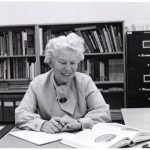
Henrietta Alderson, 1915-2000 View Archival Material
Henrietta Alderson was a nurse, educator, and historian.
A native of Caledonia, Ontario, Alderson was born in 1915 and completed her nursing education at the Hamilton General Hospital School of Nursing in 1938, later acquiring a teaching and supervision diploma from the University of Toronto School of Nursing. She spent two years teaching nursing arts at her alma mater before instructing science at Brandon Mental Hospital. Alderson furthered her education in New York City, achieving a Bachelor of Science from Columbia University in 1949. In 1947, she became a foundational faculty member at McMaster University’s School of Nursing, contributing to the development of its five-year Bachelor of Science in Nursing program alongside Alma Reid and Florence Greenaway. Between 1974 and 1975, she conducted dozens of oral history interviews with former students, faculty members, directors, and other administrators leaving behind a legacy captured in her book “Twenty-five years a-growing: the History of the McMaster University School of Nursing.” Alderson retired in 1975. She passed away on December 25, 2000, at the age of 85.
Alderson made significant contributions to the School of Nursing history and to the Health Sciences Archives at McMaster. Notably, Alderson curated a collection of dolls displayed in the School’s foyer, each adorned in historical nursing uniforms from the past five decades. She also initiated the search for photographs of early graduating classes, ensuring the preservation of a comprehensive photographic history of graduates from the 1940s onwards.
Archival material relating to Henrietta Alderson
The following digitized photos of Henrietta Alderson are a partial representation of what is contained in the Health Sciences Archives.
Hover cursor over images to see a description. Use the diagonal arrows to expand to full screen, and use the left and right arrows to navigate to the next or previous image.
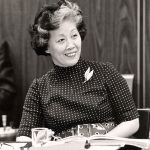
Irene Uchida, 1917-2013 View Archival Material
Dr. Irene Ayako Uchida, born on April 8, 1917, in Vancouver, British Columbia, was a pioneering Canadian geneticist renowned for her research on chromosomal abnormalities and their effects on human development (cytogenetics).
Overcoming the significant challenges posed by her internment as a Japanese Canadian during World War II, she earned a Ph.D. in zoology from McGill University in 1951. Uchida’s notable work began at the Children’s Hospital in Winnipeg, where she discovered the link between prenatal X-ray exposure and chromosomal abnormalities in newborns, significantly impacting medical protocols regarding X-ray use during pregnancy. Her contributions to understanding Down syndrome were groundbreaking, making her one of the first to study its chromosomal characteristics and laying the groundwork for further genetic condition research.
In 1969, Uchida’s career took her to McMaster University in Hamilton, Ontario, where she was a professor of pediatrics and pathology. She would retire as a professor emerita in 1985. Her tenure at McMaster solidified her status as a leading figure in genetics, where she continued her impactful research and played a crucial role in educating future geneticists and medical professionals.
Archival material relating to Irene Uchida
The following photos of Irene Uchida are a partial representation of what is contained in the Health Sciences Archives.
Hover cursor over images to see a description. Use the diagonal arrows to expand to full screen, and use the left and right arrows to navigate to the next or previous image

Mary Tremblay, 1944-2009 View Archival Material
Dr. Mary K. Tremblay was an occupational therapist, educator, scholar of disability and rehabilitation, and an advocate for disabled peoples.
Tremblay earned her doctorate in 1993 at the State University of New York at Buffalo. Later that decade, she developed and taught one of the first courses on Human Rights and Disability, a course which won the 1997 McMaster University President’s Award for Course Design and was published by Amnesty International. Tremblay served as Curriculum Chair for the new Master of Clinical Health Sciences (Occupational Therapy) Program and was a member of the Program in Medical History. She retired in August 2009.
Tremblay was a central figure in the study of the history of disability and rehabilitation, and human rights of disabled peoples. She was particularly interested in the experiences of veterans and civilians who had suffered a spinal cord injury during the Second World War, with whom she conducted oral history interviews. Committed to social justice for disabled peoples, she was also an advocate for disabled war veterans and the disability rights movement.
Mary Tremblay fonds
The following digitized records from the Mary Tremblay fonds are only a partial representation of material in the Health Sciences Archives. View a finding aid for the Mary Tremblay fonds.
The following is an Oral History Interview conducted by Mary Tremblay, with narrator Kay Fairclough. A video with Adobe Premiere generated captions was created by archives staff from the original audio recording to enhance accessibility. Kay Fairclough discusses her early life, life during the Second World War, as well as her experiences being a working mother and being the wife of a disabled war veteran of the Second World War.
A machine generated transcript can be viewed here: MaryTremblay_KayFaircloughInterview_1996_Transcript
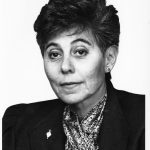
May Cohen, 1931- View Archival Material
Dr. May Cohen, born in 1931, is a distinguished Canadian physician and educator. Her highest honors include being inducted into the Canadian Medical Hall of Fame in 2016, and appointed as an Officer in the Order of Canada in 2017. Cohen has made significant contributions to medical education, women’s health, and the advocacy for the rights of women physicians and patients.
Dr. Cohen graduated from the University of Toronto’s Faculty of Medicine in 1955 and went on to have a profound impact on the medical community in Canada. One of her notable achievements was her work at McMaster University’s Faculty of Health Sciences, where she was instrumental in integrating women’s health into the medical curriculum. This was a pioneering move at the time, highlighting issues such as domestic violence, sexual health, and the importance of a gender-sensitive approach to medical care and research.
Dr. Cohen co-founded the Women’s Health Office at McMaster University in 1991, which became a vital center for advocacy, education, and research on women’s health issues. Her efforts have helped to elevate the status of women’s health in medical education and practice, as well as to support the careers of women in medicine.
May Cohen fonds
The following digitized records from the May Cohen fonds are only a partial representation of material in the Health Sciences Archives. View a finding aid for the May Cohen fonds.
Photos courtesy of the Cohen family.
The following are digitized letters between May Cohen, politicians, and others regarding abortion, from 1984-1991. View letters here: F2_S2_File1_CorrespondenceRegardingAbortion_1984-1991
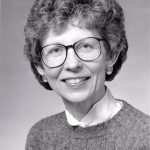
Karyn Kaufman, 1944- View Archival Material
Dr. Karyn Kaufman is known for her significant contributions to midwifery, both in Canada and internationally. She has played a pivotal role in the development and promotion of midwifery as a recognized and respected profession within the healthcare system. Kaufman has been involved in midwifery education, research, and practice, working tirelessly to improve maternal and newborn health outcomes.
At McMaster University in Hamilton, Ontario, Canada, Dr. Kaufman was instrumental in establishing the Midwifery Education Program in 1993, acting as Director and Assistant Dean of the program until her retirement in 2006. This program has been crucial in educating midwives, contributing to the profession’s growth and the enhancement of maternal and child health care services in Canada and beyond.
Dr. Kaufman’s contributions to the field have been recognized through various awards and honors such as the Lifetime Achievement Award from the Association of Ontario Midwives, reflecting her impact on midwifery education, practice, and policy. Her dedication to the profession and her efforts to improve healthcare for women and infants highlight her as a prominent figure in the field of midwifery.
Archival material relating to Karyn Kaufman
The following digitized photos of Karyn Kaufman are a partial representation of what is contained in the Health Sciences Archives.
Hover cursor over images to see a description. Use the diagonal arrows to expand to full screen, and use the left and right arrows to navigate to the next or previous image.
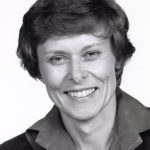
Roberta Bondar, 1945- View Archival Material
Dr. Roberta Bondar is a Canadian astronaut, physician, scientist, educator, and photographer. Her highest honors include being inducted into the Canadian Medical Hall of Fame in 1998, receiving a star on Canada’s Walk of Fame in 2011, and appointment as a Companion to the Order of Canada in 2018.
Born on December 4, 1945, in Sault Ste. Marie, Ontario, Canada, she became the first Canadian woman and the second Canadian to fly in space. Bondar flew aboard the Space Shuttle Discovery on Mission STS-42, January 22–30, 1992, as a Payload Specialist. During this mission, she conducted experiments in the shuttle’s Spacelab module related to the effects of low gravity on the human body. Following her spaceflight and astronaut career, Bondar led an international research team at NASA examining data obtained from astronauts on space missions to gain a deeper insight into how the human body can recover after being exposed to the conditions of space.
Bondar’s background includes a rich academic career; she holds a Bachelor of Science in Zoology and Agriculture from the University of Guelph, a Master of Science in Experimental Pathology from the University of Western Ontario, a Doctor of Philosophy in Neuroscience from the University of Toronto, and a Doctor of Medicine from McMaster University.
Archival material relating to Roberta Bondar
The following digitized records relating to Roberta Bondar are a partial representation of what is contained in the Health Sciences Archives. View additional scanned material here: Bondar_Records_1983-1985
This additional material includes a photograph of Roberta Bondar with Alvin Lee examining a model of a spaceship, a Faculty of Health Sciences news bulletin supporting Roberta Bondar from 1985, and an event flyer for “Hamilton Salutes Roberta Bondar” community dinner celebrating Roberta Bondar from 1985.
In the following video from the Hamilton Academy of Medicine collection, Roberta Bondar gives a speech/presentation titled “Women’s Health Issues in the Future” at the Second Annual Women’s Health Day, 1985. A portion (28 min) of the video was cut out in this access copy, as Roberta Bondar played a movie as part of her lecture, which unfortunately had audio issues in the recording. Captions were generated through Adobe Premiere’s speech to text function.
A full machine generated transcript of the video can be viewed here: BagshawLecture_RobertaBondar_Transcript_1985
Resources and Further Reading
The following resources were used to create the In Her Hands: A Century of Women Shaping Healthcare in Hamilton exhibit, as well as additional resources relating to women who have had an impact on Hamilton’s healthcare practice, policy, and education.
Expandable List
Hamilton Public Library, Local History and Archives. Davies Collection. #293
Hamilton Public Library, Local History and Archives. Photograph Collection.
McMaster University, Health Sciences Archives. Faculty of Health Sciences fonds.
McMaster University, Health Sciences Archives. Hamilton Academy of Medicine fonds.
McMaster University, Health Sciences Archives. Janet Bryers fonds.
McMaster University, Health Sciences Archives. May Cohen fonds. F002.
McMaster University, Health Sciences Archives. Mary Tremblay fonds. F009.
University of Waterloo Archives. Elizabeth Smith Shortt fonds. SCA19-WA10.
The following is a list of books and other resources published by or about the women featured in this exhibit, and which can be found at the Health Sciences Library, requested through Omni, or available to view online.
Elizabeth Smith Shortt
Elizabeth Bagshaw
Hawkins, M. E., & Bagshaw, E. (1935). Progress report, June, 1935. [s.n.],.
Wild, Marjorie. (1984). Elizabeth Bagshaw. Fitzhenry & Whiteside.
Nora Francis Henderson
Henrietta Alderson
Irene Uchida
Mary Tremblay
Tremblay, Mary. (1993). Living with disability?: the early pioneers. UMI Dissertation Services.
May Cohen
Levitt, Cheryl. (2022). The Gender Lady. Dr. May Cohen. https://maycohen.com/
Karyn Kaufman
Murphy-Black, T. (1995). Issues in midwifery. Churchill Livingstone.
Zeanah, C. H. (2000). Handbook of infant mental health (2nd ed.). Guilford Press.
Roberta Bondar
Bondar, B., & Bondar, R. (1993). On the shuttle?: eight days in space. Greey de Pencier Books.
Bondar, R. (n.d.). Touching the earth.
Bondar, R. (2000). Passionate vision?: discovering Canada’s national parks. Douglas & McIntyre.
Bondar, R. (2002). Canada?: landscape of dreams. Douglas & McIntyre
Bondar, R. (2006). The arid edge of Earth. Roberta Bondar Astronaut Enterprise.
Many more women have also been honored and inducted into McMaster University’s Faculty of Health Sciences Community of Distinction for their outstanding work in healthcare. Their portraits and citations are displayed in the Ewart Angus Centre atrium in the Health Sciences Centre, as well as online.
- Alma Reid (2003)
- Beatrix Robinow (2004)
- Susan French (2004)
- Karin Schilling (2006)
- Ludmila (Niky) Melichar (2006)
- Helen Saarinen-Rahikka (2008)
- Barbara Ferrier (2009)
- Ruth Snider (2010)
- Barbara Cooper (2013)
- Raelene Rathbone (2014)
- Alba Dicenso (2016)
- Mary Law (2016)
- Maureen Andrew (2017)
- Heather Arthur (2018)
- Saroj Saigal (2018)
- Gina Browne (2019)
- Sue Baptise (2022)


